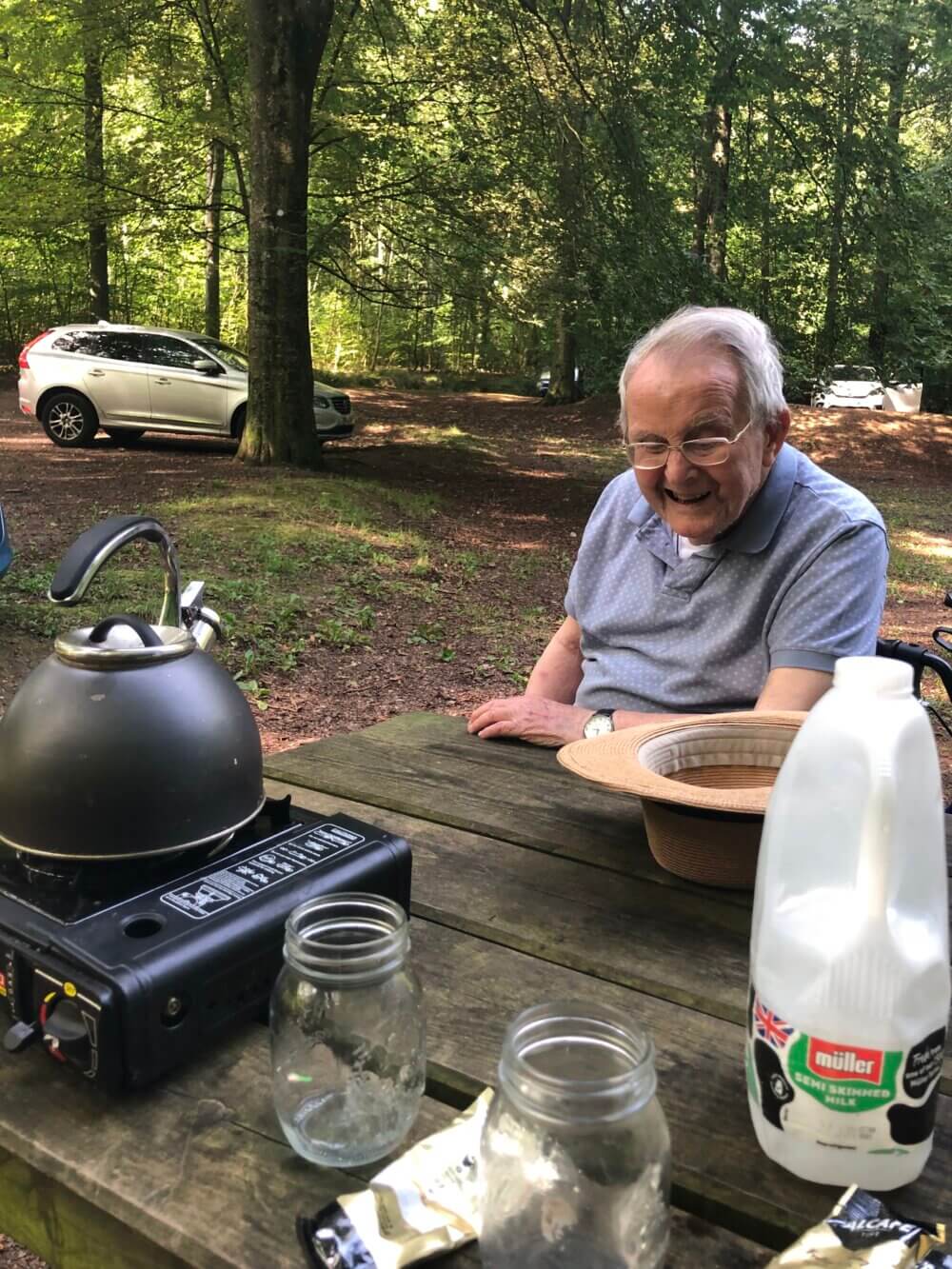Home care in Andover & East Wiltshire
The Home Instead team at Andover & East Wiltshire are proud to provide expert home care across the area.
We are proud to service Andover and East Wiltshire

Care Services
Care isn't always an easy topic. We will help you make an informed, compassionate choice for your loved one.
Meet the team
Before opening Home Instead Andover & East Wiltshire, I spent 17 years in the Royal Army Medical Corps and I'm still an active member of the Reserves. This gave me a passion for serving others and a love for leading people.
Nell Light
Director
I am the Care Manager responsible for overseeing all Care Operations.
Bettina Negrine
Care Manager
My role is to co-ordinate all the care visits and Care Professionals, to deliver the best service to our Clients and make sure everything runs smoothly.
Emma Cave-Toye
Scheduler
I am responsible for mentoring all Care Professionals new to Home Instead, through their Care Certificate.
Ali Daw
Senior Care Professional
I'm responsible for Invoicing and Payroll and dealing with any financial queries from our staff and clients. I have worked as a Care Professional with Home Instead since 2017 and am the Client Lead for the Andover area.
Caroline Laurillard
Finance Manager & Client Lead
I am responsible for supporting Sophie, and helping her guide our amazing Care professionals through the recruitment process. I have been with Home Instead since 2018 and love my role.
Liv Armon-Jones
Recruitment Administrator
I am responsible for training and mentoring Care Professionals who are new to Home Instead
Shannon Lea
Senior Care Professional

Areas and postcodes we cover
Our office provides care for people at home in the following areas.
Andover, Devizes, Durrington, Amesbury, Tidworth, Marlborough, Ludgershall, Aughton, Wilton, Pewsey, Boreham, Littledown, Saxon Fields, Market Lavington, Picket Twenty, Anna Valley, Shrewton, Aldbourne, Burbage, Larkhill, Potterne, Perham Down, Shipton Bellinger, Netheravon, Littleton Panell, Charlton Down, Great Bedwyn, Picket Piece, Over Wallop, Forton, Horton, Weyhill, Rowde, Compton, Compton, Porton, Urchfont, Chilbolton, St Mary Bourne, Collingbourne Ducis, Stockbridge, Goodworth Clatford, Baydon, Hurstbourne Tarrant, Upavon, Enham Alamein, Worton, Woodhouse, Great Cheverell, Abbotts Ann, Palestine, Monxton, Erlestoke, Barford St Martin, Durley, Andover Down, All Cannings, Forest Hill, Littleworth, Appleshaw, Shalbourne, Collingbourne Kingston, Milton Lilbourne, Tilshead, Vernham Dean, Newton Tony, Ogbourne St George, Nether Wallop, Penton Mewsey, Idmiston, Bulkington, Figheldean, Chirton, Mildenhall, East Grafton, Wherwell, Longparish, Houghton, Manton, Woodborough, West Overton, Bishops Cannings, Oare, Froxfield, Ogbourne St Andrew, Poulshot, Grateley, Sandy Down, Longstock, Lockeridge, Easton Royal, Cholderton, Kimpton, Steeple Langford, Fyfield, Fyfield, Orcheston, Axford, Hanging Langford, Boscombe, Wootton Rivers, Wildhern, Hatherden, Berwick St James, Everleigh, Upper Chute, Wilcot, Quarley, Winterbourne Stoke, Coate, Amport, Ham, Knights Enham, Stanton St Bernard, Avebury, Marston, Bottlesford, Ashley, Wedhampton, Etchilhampton, Tangley, Patney, Stapleford, Stoke, West Amesbury, Henley, Up Somborne, Little Bedwyn, Rushall, Broughton, Middleton, West Lavington, Woodbridge, Brunton, Chute Forest, Eastcourt, Milston, East Kennett, Alton Barnes, Little Cheverell, Rockley, Beckhampton, Binley, East Chisenbury, Allington, Allington, Stert, Marden, Leckford, Serrington, Chisbury, Smannell, Redenham, Faccombe, Enford, Woodside, Manningford Bohune, Roundway, Thruxton, Charlton St Peter, Beechingstoke, Furzedown, Southend, Chute Cadley, Ablington, Whittonditch, Lydeway, Lake, Cadley, Upper Upham, Coombe, Bossington, Lower Chute, Brook, Vernham Street, Oxenwood, Townsend, Honeystreet, Easterton, Ram Alley, Linkenholt, Alton Priors, Wexcombe, Fosbury, Bulford, Newton Stacey, Little Somborne, Fullerton, Marten, Upton, Cottonworth, Ogbourne Maizey, Clatford, Buttermere, Little Langford, Woodsend, Little London, Crofton, Wilsford, Little Horton, Wilsford, Netherton, Horsebridge, Egbury, Gore Cross, Clanville, Huish, West Stowell, West Kennett, Preston, Tidcombe, Little Salisbury, North Houghton, Chute Standen, Wadwick, New Town, West Chisenbury, Manningford Bruce, Upper Enham, North Newnton, Normanton, Charlton Village, Walworth Business Park, Augusta Park, Burghclere Down, Anna Fields, Faberstown, Ibthorpe, Upper Clatford, Haxton, East Aston, Penton Grafton, Imber, Kings Somborne, Ramsbury, Stitchcombe, Clench Common, Hoplands, Middle Houghton, Upper Eldon, Thruxton Down, Eastridge, Biddesden Bottom, Lower Eldon, Pittleworth, Houghton Drayton, Winton Hill, Vernham Bank, Vernham Row, Middle Wallop, Greenland Camp, Brigmerston, Ragged Appleshaw, The New House, Sarson, Little Ann, South Upavon, Fittleton, West Clyffe, East Clyffe, Middle Wyke, Lower Wyke, Upper Wyke, Littlecroft Farm, Preshute
If your town doesn't appear above please check the postcodes below to see if we cover your area.
SP10 2, SP4 7, SN10 4, SP4 0, SP4 9, SN9 6, SP11 8, SO20 8, SP10 5, SP4 8, SN8 1, SO20 6, SN8 4, SP9 7, SP10 4, SN8 2, SN9 5, SN8 3, SP11 0, SN10 3, SN10 5, SP10 3, SP10 1, SP11 9, SP11 7, SP3 4, SN10 1, SP11 6, SN10 2
Local advice & support

Preventing Hospitalisation for the Elderly
Discover more

Our outstanding Care Professional, Amanda Wernham is on a mission!
Discover more

Arts Together - Ageing Creatively
Discover more

Dementia: A Recent Diagnosis and Pathways to Support
Discover more

What3Words
Discover more

Exploring the local area - Recce out to accessible places of interest
Discover more
Get in touch today to
see how we can help
Become a Care Professional today

